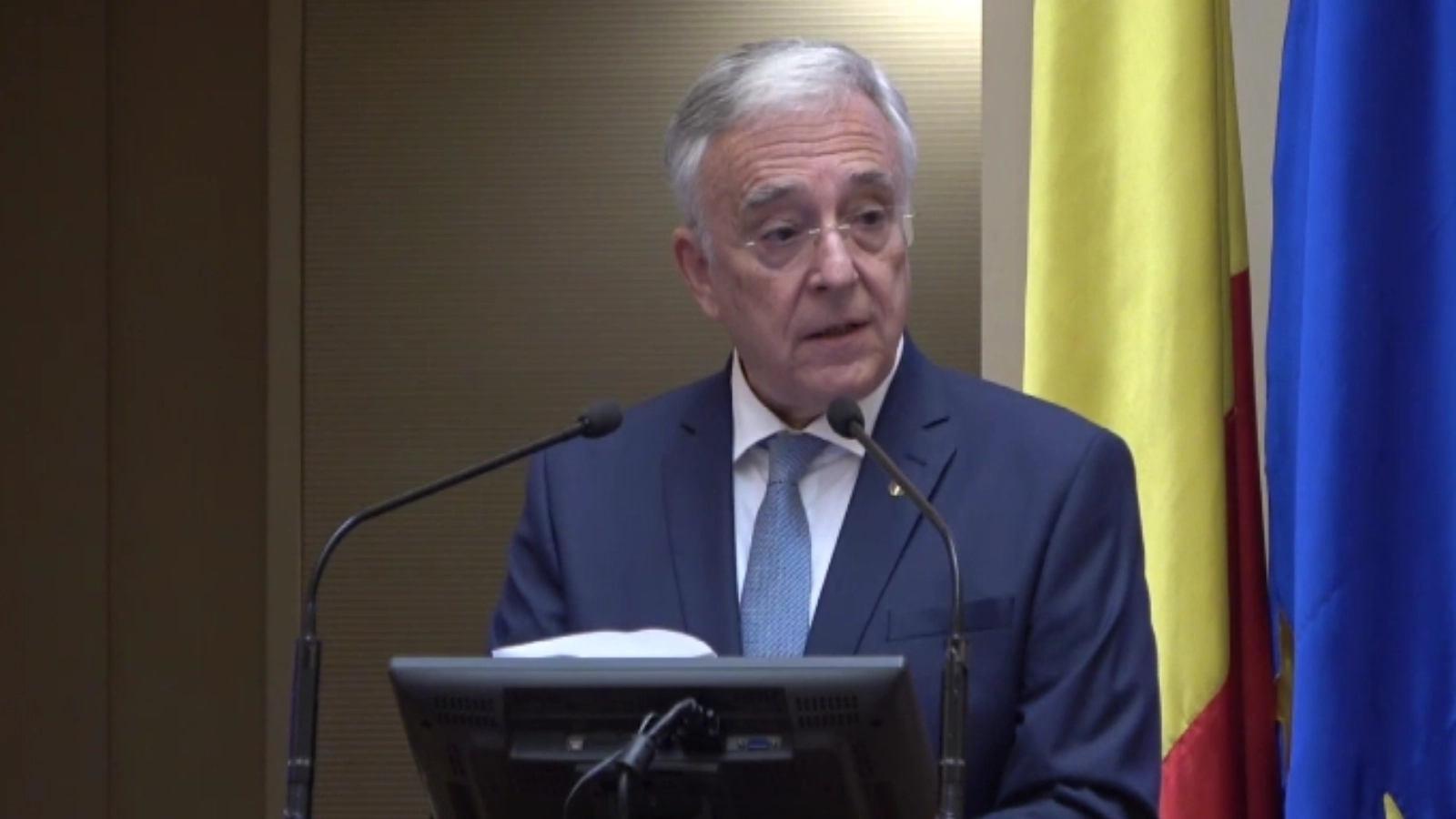Romania is facing a widening shortage in highly trained workforce, Governor of the National Bank of Romania (BNR) Mugur Isarescu said on Thursday, adding that the country's economically inactive population is almost four million people who, although of employable age, are not working, are not looking for jobs and are not self-employed either.
"Romania has a surplus of primary and secondary-school graduate employees, who make up a less trained workforce. There is also a surplus of professionals, but it is decreasing, while at the same time Romania is facing a shortage of highly trained workforce. Such workforce is increasingly more being demanded in Romania. The country has an economically inactive population of almost four million people aged between 15 and 64 who, although of employable age, do not have a job and are not seeking one and are not self-employed either," Isarescu said at a news conference where he released BNR's quarterly report on inflation.
According to him, of this economically inactive population, only 10 percent would be ready to work, although not looking for a job. In addition, half of these people live in the countryside, 46 percent are only secondary school graduates, and 50 percent are high school, post-secondary school or vocational school graduates.
Among the young people, only 80 percent are in school, while the others are not gainfully employed, Isarescu added.
He warned that there is a certain degree of tension on the labour market that is a structural problem.
"There is another serious problem, namely a degree of labour market tension, which we have set to analyse. It is not necessarily in our province, but we know that labour market tensions are a structural problem in the labour market, pushing wages upwards. So even if there were no let's say stimulating wage policy, pay keeps on tending to increase because of migration, because for instance, when someone comes from abroad seeking employment he or she will also come with different demands, and hence the tension," said Isarescu. AGERPRES .
BNR Governor Isarescu: Romania is facing a widening shortage in highly trained workforce
Explorează subiectul
Articole Similare

9
PSD's Fifor welcomes President Dan's decision to attend next week's Peace Council meeting
9

18
DefMin Miruta: Romania must not be only a beneficiary of security, but also a provider;we need competitive industry
18

22
HealthMin Rogobete: Regional Oncology Institute in Timisoara must become operational by end of 2028
22

18
Geoana: Transatlantic relation remains essential and unique, but it needs to find a new balance
18

38
Gov't welcomes purchase of Giurgiulesti International Port operator, as it contributes to strengthening Strategic Partnership
38

12
Finance minister says priority remains continuation of budgetary discipline and economy relaunch on sustainable basis
12

21
BrancusiYear/Small table and trovants, story of Constantin Brancusi's lesser-known works
21

18
Fitch affirms Romania at 'BBB minus'; outlook negative
18

14
DefMin Miruta has meetings with European defence industry representatives on Munich conference sidelines
14

15
Figures from real economy show for two years we not well (professor Cristian Paun)
15

17
FEATURE STORY/Daniel Castle in Talisoara features murals of local aristocratic life, similar to today's social-network style
17

11
International Master's programme Inclusion Studies launched by Stefan cel Mare University, two European universities
11

10
Bucharest Stock Exchange closes lower Friday's trading session
10



















Comentează